On 24 of February 2022, Vladimir Putin declared the invasion of Russian troops into Ukraine, advocating a “denazification” of Ukrainian military forces and defense of independent areas in the Donbas region. This act moved a UN meeting and resolution against the invasion, which required a response from each member country and their positions in the conflict, which is not just Russia and Ukraine but involves the United States, NATO, the European Union and neighbouring countries.
The UK Defence Minister stated that Putin was a “full-tonto”, inconsequential and lacking allies to support Russia’s position internationally. But the reality is that Russia has a certain number of ties that allow commercial and political security, mainly due to the dependency relations that have been built within the Russian agenda with the other countries of the Middle East, Eurasia and Latin America.

The UN resolution and the country’s overall positions
On March 2nd 2022, the UN General Assembly passed an international resolution condemning Russia and the military invasion of Ukrainian territory.
The 181-country meeting was approved by 141 countries, including the US; 35 abstained, such as China, India, Iran and Cuba; and Russia, Belarus, Eritrea, North Korea and Syria voted against.
This resolution has non binding condemnation and enforcement power, but it exposes countries’ positions on armed conflict and represents a majority international unity. Still, the understanding of the situation should not be based solely on this, since the implications go beyond what was said at the UN.
For example, a week before Putin declared the invasion of Ukraine there was the visit and meeting with Brazilian President Jair Bolsonaro. Tensions in Eastern Europe were already present and the president had affirmed support for Putin’s positions, strengthening his far-right ideology. Nevertheless, Brazil voted in favour of the UN resolution.
Another ambiguous position demonstrated through visits was the presence of the Prime Minister of Pakistan for an entourage meeting. Even saying that there was nothing related to Ukraine under discussion, but rather the construction of a Russian pipeline in Pakistan, Prime Minister Imran Khan told Russian TV that he expected a resolution of the conflict, keeping to superficial comments. At the UN meeting, the country abstained.
Meanwhile, in the West’s main seats in the White House and in the European Union, there is the firm position against Russia with the implementation of several sanctions against the country and affecting the economies of the oligarchs close to the Kremlin.
This division between the main world hegemonies that dictate the position of countries, the ambiguity of Brazil and Pakistan, for example, comes by ties with both actors. Russia and the United States have relations of dependency with other countries, both charging positions favorable to them.
The way Russia builds its international relations
Vladimir Putin is an autocrat who rules Russia alone, maintaining power relations with other countries but without a great “faithful” ally.
Russian relations with the nations of the Middle East and Latin America against the interventions of the United States and NATO allowed a tension of geopolitical forces and theconflict between democracies and autocracies that Putin defends.
The supply of military equipment and political-economic support also establishes a dependency relationship of other countries with Russia, such as Russian support to Syria against regional conflicts in 2015 that was essential to change the tide of war.
The Kremilin and its diplomatic entourage are in this endeavor to build these relations on the basis of dependency because they know that this position allows a collection of “loyalty” at times like the current one between Russia and Ukraine.
However, this loyalty is not necessarily due to the alliance itself, but due to the lack that Russian supply/support, whether military or economic, can do to countries. Between supporting a military conflict or weakening their national security being vulnerable as in Syria or Venezuela, leaders choose to support tensions.
Which nations support Putin or are neutral in the conflict
Even with a view to supporting countries that already had relations with Russia, this is not so easy to observe in reality. Several countries have a dubious position, and few have openly supported President Putin’s actions.
- China:
Chinese President Xi Jinping and Vladimir Putin have been strengthening ties between countries in recent years. The Foreign Minister of China was the one making the main positions on the conflicts in Ukraine, not having a direct statement from Xi Jinping until Monday, March 7, 2022.
China declared that it defends the national sovereignty and independent of all countries, but never came to call invasion the Russian military advance. In this statement, the Asian country even said that Russia had “legitimate security concerns” that “must be taken seriously and treated properly”.
The two autocratic leaders even met days before the start of the match at the Winter Olympics in Beijing. This meeting generated a joint declaration of a strategic relationship against the United States and recognizing the expansion of NATO as a policy based on the already outdated ideologies of the Cold War, against the growth of the two powers.
In the last statement by Xi Jinping, at a video meeting with French President Emmanuel Macron, the Chinese position changed slightly. The president said that China is “distressed to see the flames of war rekindle in Europe” and called for “maximum restraint” in Ukraine. Even standing more vehemently against the conflict, he did not stand completely against the Russian leader.
The position of China is complicated because a if it’s favorable to Moscow it can give more strength to Russia’s advances, since it is one of the main economic actors today and has already shown itself together with Putin in other situations.
- Belarus:
Belarus is one of Russia’s main declared allies historically. The CSTO is one of the bases that ensures support for Putin’s actions, since the country is the leader of the organization and has a military cooperation with the member states, where Belarus is one of the participants.
The country has a border with both Russia and Ukraine, was the headquarters of the military exercises of more than 30,000 Russian soldiers and is serving as one of the main access routes of the Russian troops to Ukraine. It can therefore be said that Belarus is Russia’s main ally in this conflict and even accomplice to possible war crimes.
- Kazakhstan:
Kazakhstan is one of the CSTO Member States as well, in January 2022 CSTO defended the Kazakh government against popular protests, which ensured a “debt” position with Russia.
The country is one of the main exporters and has large oil reserves, having a country like this in a position of subordination has great geopolitical importance. However, this did not guarantee the full support of Kazakhstan, as the country is afraid of the devaluation of its currency. Within the CSTO other countries are also wary of Russian requests for support, such as Kyrgyzstan and Tajikistan.
In the UN resolution, Kazakhstan abstained and according to news, denied the Russian request to send troops from Kazakhstan to support the Kremlin in Ukraine. However, it is still a Russian ally that has Russian military and rocket launch bases on its territory, such as Baikonur Launch Base.
- Iran:
Iran has mixed statements, opposing to the war but standing against NATO and the US, as well as China. The country has already suffered attacks originating from the United States and has no relations with the American power since 1979 with the Iranian Revolution.
On February 24, 2022, the day Putin declared the invasion of Ukraine, Iranian President Ebrahim Raisi met with the Kremlin and said:
“NATO’s eastward expansion creates tension and is a serious threat to the stability and security of independent states in various areas,” Raisi said after Russia’s military attack on Ukraine. “I hope that what is happening benefits the people and the whole region”, completed.
CNN Brazil
- Syria:
Syria has positioned itself in favor of Russian recognition of the independent areas in Eastern Ukraine in Donbas. The alliance between Putin and President Bashar al-Assad has existed since 2011 with Moscow’s support for the Syrian government against civil war protests, where they made air strikes in 2015 to control popular Protestants which was essential to keep Assad in power.
In addition, the country also suffered American attacks during its civil war and sees the West’s positions against Russia as a repeat of what they experienced. As such, the Assad government is one of Russia’s main allies in the world and has offered more than 12,000 Syrian fighters to support Russia in Ukraine.
- Pakistan:
Following its agenda of rapprochement with Asia to form a concise bloc, Russia has been approaching Pakistan economically. With an investment of US$2.5 billion, the construction of a Pakistani gas pipeline will allow greater independence and economic growth for the country. For Russia, with the recent negation of Nord-Stream 2 in Germany, this project will allow a strengthening of economic relations with the neighbouring countries of Eurasia. This investment is part of a $14 billion project coming from Russia for Pakistan’s energy sector, in addition to the country’s agreements with “Belt & Road Initiative” from China.
With unstable relations with India and conflicts in Afghanistan affecting its economy, the Pakistani goal is to consolidate its connection with China and Russia for greater stability and national security.
As the agreements are still going on, Pakistan abstained from the UN vote, as it could not go against a country that has billions invested in its economy.
- India:
India and Russia have a relationship of interest, in which the supply of armaments such as S-400 anti-aircraft missiles from Moscow allows Indian military development. However, India has strained relations with China and other Russian trade allies, such as Pakistan.
Still, the Indian Foreign Minister, hours after the announcement of the invasion, has already made clear the Indian position as a neutral country. No Indian authority has ever condemned the attacks on Ukraine, but has advocated a cease-fire and a diplomatic dialogue between Moscow and Kiev.
Because of the historical associations with the USSR and currently with the dependence on economic relations with Russia, and at the same time the conflicting reaction with China, the country abstained from the UN.
- Brazil:
Brazil has always had a deep alliance with the United States, but with the current government of President Jair Bolsonaro and his ideological departure from Joe Biden, there was an approximation with the rival of the Americans: Vladimir Putin. The visit to Russia came under pressure from the White House for its cancellation, but if the Brazilian delegation ceded to the US the international scene would see Brazil as a “puppet of the US“.
Brazil is excluded diplomatically by the policies implemented in this government and attacks on large economies such as the US, China, and the European Union, with only Russia as a pseudo-ally since both are also part of the BRICS. Even so, the commercial relations with the Russians do not have a material economic importance to Brazil, since the main product they export are fertilizers and these represent only about 0.74% of the Brazilian exports.
With the lowest approval in the history of Brazilian politics, Bolsonaro’s trip to Russia was another representative act of greatness and his autocratic ideology in favor of “strong men.” Officially, the visit aimed to talk about Russian investments in hydrocarbons and infrastructure in the Brazilian territory. But Putin was not the only autocrat that Bolsonaro visited earlier this year, following directly from Moscow to Hungary.
The ambiguous statements diplomatically take place by this distance between the political agenda of Bolsonaro and the sphere of economic relations with other countries. So, even declaring support for Putin during his visit to the country, Brazil voted in favor of the UN resolution against Russia.
- Venezuela:
President Nicolas Maduro declared support for Russia before and after the direct invasion of Ukraine. Russia is an important trading partner for Venezuela, being one of the main suppliers of armaments to the Venezuelan military forces, from fighters and tanks to rifles, possessing a strategic relationship.
Both join together against US hegemony and the expansion of NATO, the Venezuelan ambassador to the UN said that the conflict in Ukraine was aggravated by the pressures of the NATO military blockades. In addition, President Maduro stated on his Twitter that he is “certain that Russia will emerge from this united and victorious battle” and declared “all support for President Putin and his people”, saying that NATO is surrounding and planning an attack on Russia but without presenting evidence of this accusation.
However they positioned themselves at the UN meeting, they abstained from the resolution.
- Cuba:
Cuba and the Soviet Union had deep cooperation relations and Putin maintains a cordiality with the Latin American country. Russia is against the US economic blockade in Cuba, and with the current scenario of several sanctions in the Russian economy, Cuba has reciprocated support.
After the invasion of Ukraine, the Cuban government issued a note in which it did not directly mention the Russians but directed criticism to the US for imposing “the progressive expansion of NATO towards the borders of the Russian Federation”. Reuters reported that this note was issued after an agreement with Putin to postpone payment of Cuban debts until 2027.
“The US government has been threatening Russia for weeks and manipulating the international community about the dangers of a ‘massive imminent invasion’ of Ukraine. The United States provided weapons and military technology, sent troops to several countries in the region, applied unilateral and unjust sanctions, and threatened other reprisals,” the Cuban note said.
BBC News
“Cuba rejects this hypocrisy and this double standard in NATO’s stance. In 1999, there was an attack on Yugoslavia and the countries of Europe did not avoid the great loss of lives for geopolitical reasons. The United States has used force on several occasions in sovereign countries to alter regimes, interfering in the domestic politics of other countries”
Cuban Ambassador to the UN, CNN Brazil
The country abstained from voting on the UN resolution against Russia, but advocated a diplomatic dialogue for the conflict.
There are other actors who are also in this neutral position, such as the African Union of the 55 countries of the continent has positioned itself; in addition to others who are in favor of Putin’s actions, such as Nicaragua, which was the first country to position itself in favor.
Politics is made by interests, power, economic, social and etc., and Putin’s great goal of strengthening the “weak” and “excluded” from the hegemonic game is what guarantees the political relations that hold the end of Russia internationally.
And what is the future tendency for Russian alliances…
Even having some allies or countries neutral towards Russia, it is clear that the Kremlin is almost totally isolated worldwide. Among the nearly 200 countries in the world, very few openly showed themselves in favor of the Russian invasion, as seen above.
This is important because it shows a unity of the world’s liberal democracies and even of some autocracies that see the Russian invasion as a breach of international laws and customs established since the end of World War II.
Moreover, this alliance of countries against the Russian invasion understands that large-scale armed conflicts tend to harm world trade and thus their own national economies.
With the invasion, Russia became an international pariah, isolating itself more and more from the globalized and liberal world and scaring away investors and brains. The colossal world economic sanctions against Russia will only contribute to this process. A new “Dark Age” is establishing itself over Russia. Its current allies and appeasers should withdraw so as not to sink together.
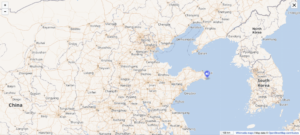
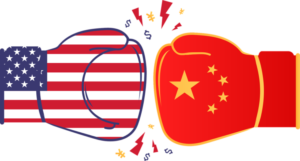
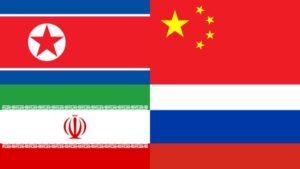
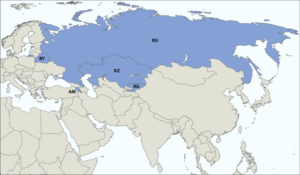


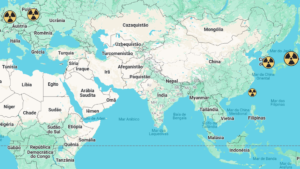
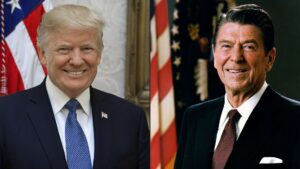
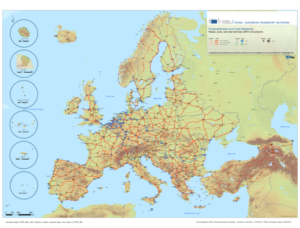
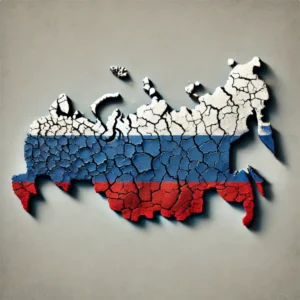
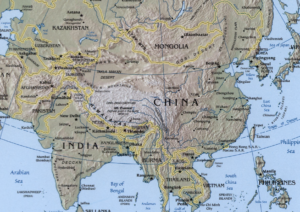
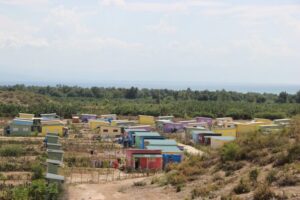




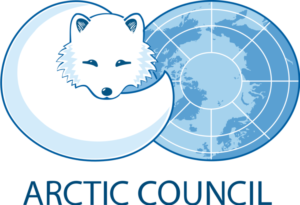


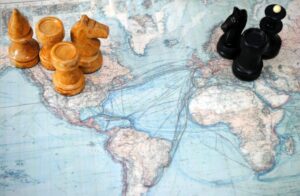

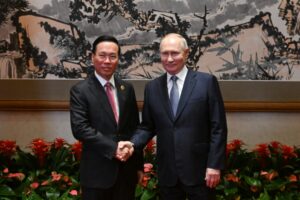
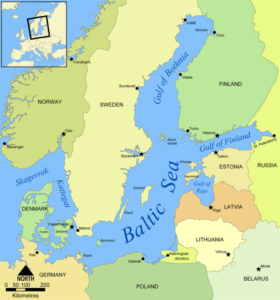
Be First to Comment